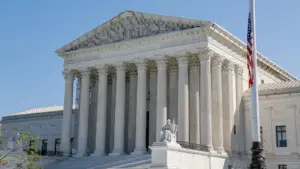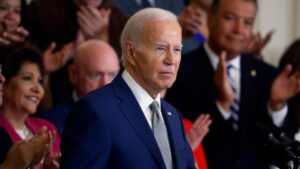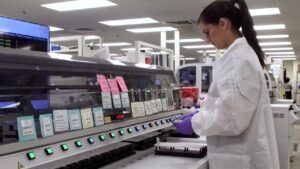The American Chemistry Council and American Fuel & Petrochemical Manufacturers are advocating for a temporary reprieve from new federal pollution restrictions set to take effect, arguing the financial burden is unsustainable for their members.
Chemical Industry Seeks Presidential Waiver on Pollution Regulations

Chemical Industry Seeks Presidential Waiver on Pollution Regulations
Industry groups request exemption from Biden-era limits aimed at reducing toxic air emissions, citing high compliance costs.
The argument posits that the recent requirements, introduced under the Biden administration, aim to mitigate harmful emissions from chemical plants, specifically targeting carcinogens like ethylene oxide, a key component in antifreeze and plastics. The request for a presidential waiver, directed to EPA administrator Lee Zeldin, reflects a deeper tension between regulatory oversight and industry operations.
The two influential organizations, representing key players in the chemical sector, have expressed that adhering to the new rule could incur costs exceeding $50 billion, a figure significantly higher than the EPA's estimated $1.8 billion. Their letter, dated March 31, highlights the complexities involved in implementing what they describe as "significantly costly requirements on an unworkable timeline.”
The backdrop to this plea includes an earlier notice from the EPA indicating potential pathways for companies to seek waivers from major clean-air regulations. Grounded in a provision of the Clean Air Act, the clause allows for temporary exemptions if certain technological solutions are deemed unavailable and the request aligns with national security interests.
As this narrative develops, the implications for public health and environmental standards juxtapose against industry practices, raising concerns among environmental advocates who argue that leniency could undermine efforts to protect communities from hazardous pollutants. The unfolding dynamics between regulatory bodies and the chemical sector continue to elicit varied responses from advocates and policymakers alike.
The two influential organizations, representing key players in the chemical sector, have expressed that adhering to the new rule could incur costs exceeding $50 billion, a figure significantly higher than the EPA's estimated $1.8 billion. Their letter, dated March 31, highlights the complexities involved in implementing what they describe as "significantly costly requirements on an unworkable timeline.”
The backdrop to this plea includes an earlier notice from the EPA indicating potential pathways for companies to seek waivers from major clean-air regulations. Grounded in a provision of the Clean Air Act, the clause allows for temporary exemptions if certain technological solutions are deemed unavailable and the request aligns with national security interests.
As this narrative develops, the implications for public health and environmental standards juxtapose against industry practices, raising concerns among environmental advocates who argue that leniency could undermine efforts to protect communities from hazardous pollutants. The unfolding dynamics between regulatory bodies and the chemical sector continue to elicit varied responses from advocates and policymakers alike.























